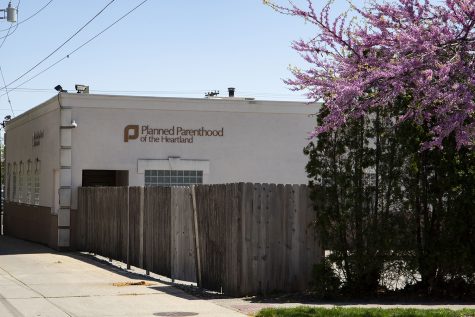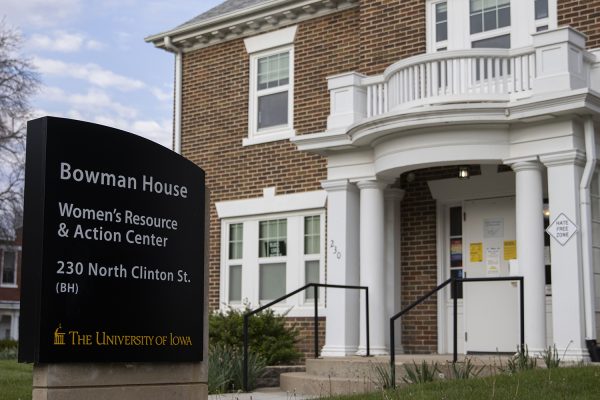Using cannabis during pregnancy can negatively affect fetal growth, according to a new study
A new study involving UI researchers finds cannabis use during pregnancy can lead to adverse birth effects, including a 70 percent increase in small for gestational age births.
The College of Public Health is seen on March 11, 2019.
January 21, 2020
As access to cannabis becomes more widespread across the United States, a recent study has concluded that cannabis use during pregnancy may negatively impact fetal growth and development.
The study, conducted by University of Iowa researchers, the University of Minnesota, and HealthPartners Institute compared birth and early developmental screens of infants who had been exposed to cannabis during the course of the pregnancy with those who had not.
As of June 2019, 11 states have legalized recreational marijuana use and 21 additional states have legalized the use of medical marijuana.
The purpose of the study was to search for adverse birth effects, UI epidemiology Professor Paul Romitti said. These included preterm birth, low birth rate, small for gestational age birth, and major structural birth defects.
Data from the study was provided by HealthPartners Institute, a nonprofit health-care organization that operates several hospitals and clinics in Minnesota and western Wisconsin.
“We publish 400-some studies a year,” said David Martinson, senior communications consultant at HealthPartners. “They run the gamut. Everything from things like health economics to maternal and child health, to diabetes. Our work really spans a pretty broad spectrum of health research.”
RELATED: Lawmakers try to expand CBD program
According to a National Survey of Drug Use and Health Data, prenatal cannabis use is on the rise, increasing from 2.9 percent to 5 percent between 2002 and 2016, according to self-reports.
“There’s greater access to cannabis now,” Romitti said. “And with that, there could be that the public perception has changed with legalization. Maybe there’s a misconception that it’s safe for all uses and particularly pregnant women have reported self-medicating with cannabis to treat things like nausea, anxiety, or pain and for morning sickness.”
The study observed more than 3,400 women who were receiving prenatal care within a large health-care system and tested for cannabis using a routine urine and toxicology screen. Of those women, 8.2 percent tested positive for THC, the chemical in marijuana that gives users a “high” — 3 percent more than the national self-reporting rate.
“There’s a lot of reasons why they don’t want to report to their provider that they were using cannabis,” said Senior Research Investigator Elyse Kharbanda of HealthPartners Institute. “Sometimes they believe their last use was prior to pregnancy. So, there might be some confusion, but I think also fears about how they’ll be treated during pregnancy and other implications if they report use.”
RELATED: Expansion of Iowa’s medical marijuana program a likely upcoming legislative issue
The study also considered other variables that could cause growth defects, such as cigarette smoking in addition to looking at the effects of THC.
The results found a small uptick in babies with low birth weight, a two-fold jump in abnormal 12-month developmental screens, and a 70 percent increase in small-for-gestational-age births. Particularly, the increase in SGA births is statistically significant, Kharbanda said.
Romitti said a limitation of the study is that the laboratory data came from a one-time measurement during pregnancy, because the toxicology screen came from the first prenatal visit. As such, no data existed on whether the women continued use during pregnancy.
Additionally, the study did not look at more detailed neurocognitive exams, but Romitti expressed that studying these limitations would be something researchers want to continue in the future.
“I think our study provides timely and needed data on the prevalence and potential risks of maternal cannabis use during pregnancy among women and contributes to a growing body of literature on what are the effects of THC or cannabis use during pregnancy,” Romitti said.





















